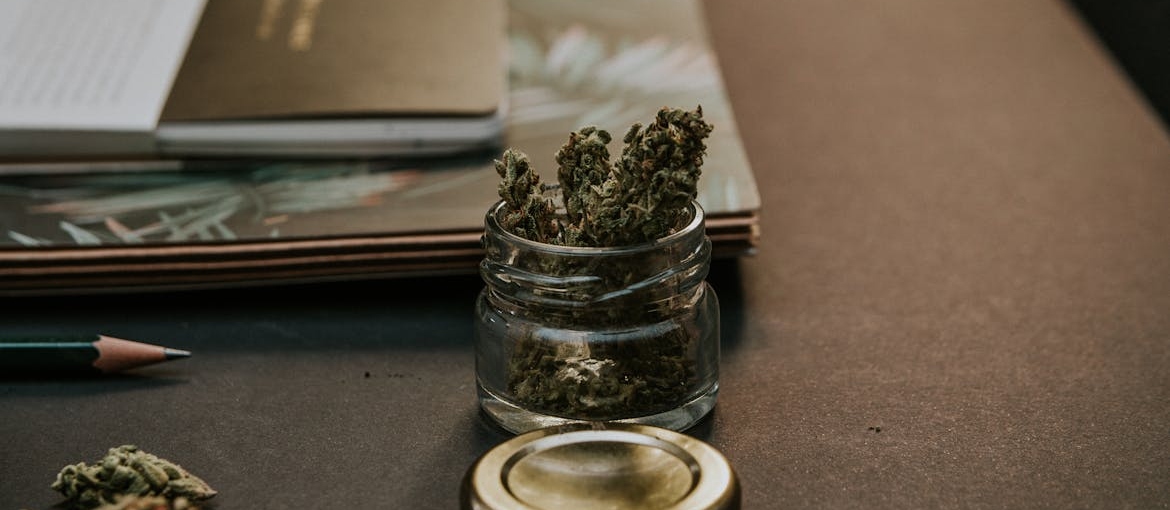Quitting marijuana isn’t always easy. If you’ve tried to stop and found yourself using again, you’re not alone. Many people struggle with quitting marijuana addiction, even when they truly want to change. The reasons are different for everyone. Some feel stuck in a routine. Others use it to manage stress or sleep. And some don’t even realize how much it’s affecting their mental health. You might feel frustrated or confused about why it’s so hard. That’s normal. Recovery doesn’t always start with one clear step, but learning what’s getting in your way can help. There are resources that make a real difference, including support groups, therapy, and detox centers in WV. If you’re ready to take a serious look at what’s holding you back, this article can point you in the right direction.
The Mental Grip of Marijuana Use
Marijuana doesn’t just affect the body—it can take over your thoughts. If you use it to calm down, sleep, or get through the day, stopping can feel impossible. That’s why many people struggle with quitting marijuana addiction. It becomes tied to routines, stress, and even boredom. Over time, your brain learns to expect it. Once that pattern sets in, quitting feels like losing your only coping tool. You may even feel like a different person without it.

That’s when professional help matters. A marijuana rehab center can help you break those patterns and teach you how to manage life without relying on weed. The mental side of addiction is powerful, but it can be changed. When you learn how your brain works, you take back control. That’s where real progress begins.
Physical and Psychological Withdrawal Symptoms
When you stop using marijuana, your brain needs time to adjust. Withdrawal feels different for everyone, but it’s real. Some people feel tired and foggy. Others feel restless or angry for no reason. If you struggle with quitting marijuana addiction, it might be because these symptoms caught you off guard. Many people don’t expect withdrawal from weed, so they think something’s wrong with them. It’s not you. It’s your brain trying to reset. One major change is in your sleep. Studies show how marijuana affects sleep, making it harder to rest without it. That’s frustrating but temporary.
Common physical symptoms:
- Trouble falling or staying asleep
- Night sweats or vivid dreams
- Headaches or body tension
- Upset stomach or nausea
Common psychological symptoms:
- Mood swings or anger
- Anxiety or panic
- Lack of motivation
- Strong cravings for weed
Social and Environmental Influences
Your surroundings shape your habits more than you might think. If your friends still use marijuana, quitting becomes harder. You may feel left out or pressured to join. Even places or routines can trigger cravings. Many people struggle with quitting marijuana addiction not because they don’t want to stop—but because everything around them reminds them to keep using. The more triggers you face, the harder it gets.

That’s why change often starts with your environment. If you can’t move or switch jobs, look for support elsewhere. A local drug rehab WV offers may help you build better habits and create space between you and the triggers. If you can change your space, even a little, it can change your behavior. That’s how people make progress, even when things around them stay the same.
Underlying Mental Health Challenges
For many people, marijuana use starts as a way to feel better. It can mask anxiety, depression, or trauma—but only for a while. Over time, those problems come back stronger. If you struggle with quitting marijuana addiction, look beneath the surface. You might be using it to avoid feelings that never went away. One reason recovery feels so hard is because the deeper issues are still there. They need care too. A big problem is the myths about marijuana’s harmless reputation in West Virginia, which make people think it’s fine to use as a crutch. But using it long-term can delay real treatment and cause more harm.
Common hidden issues behind marijuana use:
- Unmanaged anxiety or panic attacks
- Depression or low motivation
- PTSD or unresolved trauma
- Social phobia or fear of rejection
- Attention or focus problems
- Mood swings or irritability
What Can Help Make Quitting Easier
If you struggle with quitting marijuana addiction, the right support can make a big difference. You don’t have to do it all on your own. There are real tools that work. Knowing how to stop smoking weed or how to quit a marijuana addiction starts with small, practical changes. Below are four things that can help you get started. Each one plays a role in overcoming cannabis dependence and moving toward something better.
Building a New Routine
If weed has been part of your daily life, you’ll need to replace that pattern with something else. That’s where structure helps. It’s not about making huge changes overnight. It’s about simple, repeatable actions that keep your mind and body busy. The best way to quit marijuana addiction often starts with consistency. This gives you something to focus on when cravings hit or stress kicks in.
Try these small changes every day:
- Wake up and go to bed at the same time
- Exercise for 20 minutes, even if it’s just a walk
- Eat three balanced meals a day
- Replace your smoke break with water or tea
- Try something new like drawing, stretching, or journaling
- Limit time with people who still use
- Set one small goal to reach each week

Professional Therapy and Counseling
Some people think therapy is only for “serious” problems. That’s not true. If you struggle with quitting marijuana addiction, talking to a professional can help. They’re trained to work with people who feel stuck. You can figure out what drives your use and learn better ways to cope. For those who need more support, a partial hospitalization program West Virginia centers offer might be a good option.
It’s more structured than weekly therapy but still lets you live at home. You don’t have to hit rock bottom to try this. You just need to want something better. If you’re wondering how to help a marijuana addict quit, this is one of the most effective places to start. Therapy gives you a space to talk, heal, and rebuild your life without judgment.
Support Groups and Online Communities
You don’t need to go through this alone. A big part of tips for quitting marijuana addiction is finding people who understand what you’re going through. Support groups bring people together who face the same challenges. You can share your story, hear theirs, and learn new tools that actually work. If you prefer to stay private, online meetings can help.
If things have been going on for a while, you might also want to explore long term drug rehab WV centers offer. They give you time and space to step away from the cycle. You can build a new mindset surrounded by people who get it. Knowing you’re not the only one helps. When you feel seen and heard, it’s easier to keep moving forward—even on tough days.

Medication Assisted Treatment
If you’ve tried to quit and always end up using again, you’re not alone. Some people need more than just willpower. That’s where medication assisted treatment West Virginia programs come in. These options use medication to help reduce cravings, ease anxiety, and make it easier to focus on recovery. It’s not a shortcut. It’s a real tool, backed by science.
Combined with therapy, this method helps people stay on track. If you’re asking yourself how to stop smoking weed and feel stuck, this could help you take that next step. You still need to do the work—but it won’t feel impossible. If you struggle with quitting marijuana addiction, that doesn’t mean you’re failing. It just means your brain and body need more support to change. This can be part of the solution.
Impact of Long-Term Marijuana Use on the Brain
If you struggle with quitting marijuana addiction, it’s helpful to know what long-term use does to your brain. THC changes how your brain processes information. Over time, these changes can make it harder to focus, feel motivated, or handle stress. Some effects may improve after quitting, but others can take time to heal. The younger you were when you started using, the more lasting the impact can be. Long-term use can also affect emotional regulation, which makes staying sober harder. If you feel foggy or stuck, you’re not imagining it. These are real effects of marijuana overuse.
Here are some possible long-term effects:
- Trouble focusing or learning new information
- Memory lapses or forgetfulness
- Mood swings or irritability
- Lower motivation and drive
- Poor problem-solving and decision-making
- Higher risk of anxiety or depression

The Role of Genetics and Family History
Why is it hard for some to quit marijuana? Your genes and family environment play a part. If addiction runs in your family, you might be more prone to it. This doesn’t mean it’s certain, but it does increase your risk. Being aware of this can help you understand your own struggles with quitting marijuana addiction and prepare better.
Consider these genetic and familial factors:
- Genetic predisposition: Some people have genetic markers that make them more susceptible to addiction.
- Family habits: Growing up in a home where drug use is normalized can influence your behavior.
- Inherited traits: Traits like impulsivity or a tendency toward anxiety, which can be inherited, often contribute to addiction.
Misconceptions About Marijuana Addiction
A lot of people still believe marijuana isn’t addictive. That belief makes it harder to ask for help. If no one takes it seriously, you might start thinking your struggle isn’t real. But it is. The truth is, marijuana can become a habit that’s tough to break. That’s why it’s hard to quit marijuana, especially when it’s part of your daily routine or used to cope with stress.
Many also think there are no real risks. But the consequences of marijuana use and abuse can affect your mood, sleep, memory, and motivation. It can also hide deeper problems like anxiety or depression. When those issues go untreated, things often get worse. Quitting takes effort, but it starts with knowing that this addiction is real—and you’re not the only one going through it.
Recovery Barriers and Setbacks
You might want to quit. You might even try. But quitting doesn’t always work the first time. That’s normal. If you struggle with quitting marijuana addiction, there are often real things standing in your way. Some people don’t have support. Others don’t feel ready. Sometimes stress hits, and it’s easy to fall back into old habits. Lack of sleep, pressure at work, or even boredom can all lead to setbacks.

What matters is learning what triggers your return to weed. Then you can build a plan that works better next time. Don’t see a relapse as failure. See it as feedback. It shows where your recovery needs more support. When you spot the patterns early, you can break them before they take over. That’s how change starts—one step at a time.
Breaking the Cycle Starts Here
If you struggle with quitting marijuana addiction, that doesn’t mean you’re weak or lazy. It means you’re dealing with something real that takes time and support to change. You don’t have to fix everything alone. There are people who get what you’re going through and want to help. Maybe you need new coping tools. Maybe you just need someone to talk to. What matters most is taking one step forward, even if it’s small. You’re not stuck forever. The right support can help you move forward in a way that feels possible. You deserve that. Keep going—you’re already doing more than you think.
Frequently Asked Questions
Why is quitting marijuana addiction so hard?
Marijuana can become a mental coping tool tied to routines, stress relief, and sleep. Over time, the brain expects it, making stopping feel disruptive and uncomfortable.
Can marijuana withdrawal make quitting harder?
Yes. Withdrawal symptoms like anxiety, sleep problems, mood swings, and cravings can push people back into use, especially without support or preparation.
Why do mental health issues affect quitting marijuana?
Anxiety, depression, or trauma often drive marijuana use. If these issues go untreated, people may keep using marijuana to cope instead of addressing the root problem.



